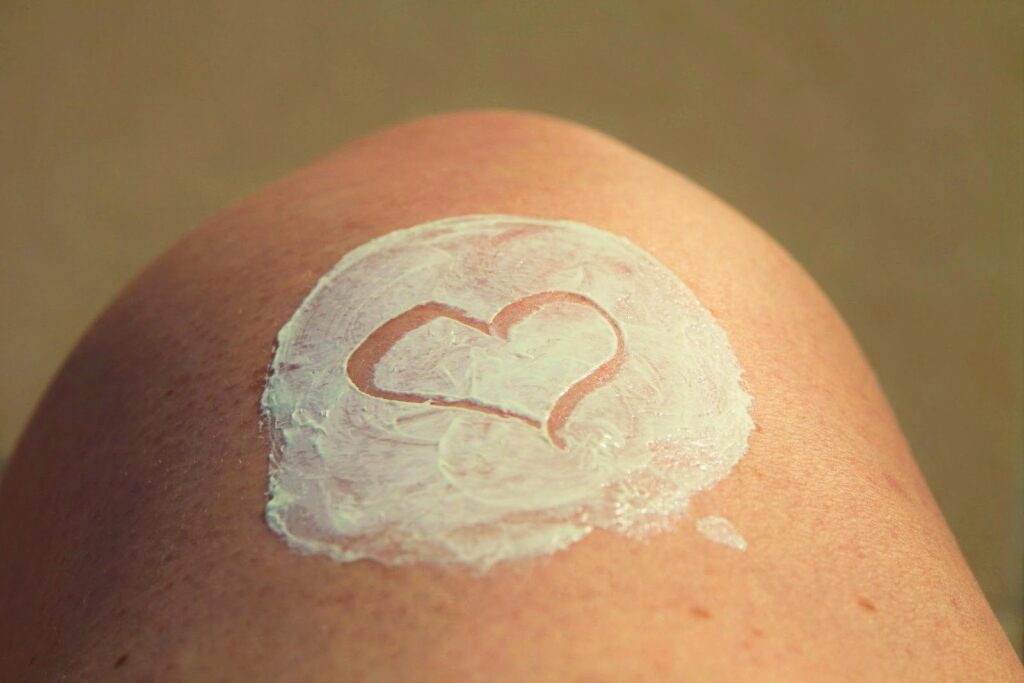Do you know the pH of your soap? Most people don’t, but they should! The average consumer spends over $1,800 every year on skin care products, and uses over 500 synthetic chemicals. What the skincare companies don’t tell you is that using so many products can keep the skin in an unhealthy state. So many products today, even those labeled natural, can disrupt the delicate balance of oil, hydration and good bacteria on the skin. Imbalances of the skin’s pH and bacteria can lead to a variety of skin conditions, from typical dermatitis to acne, dandruff and eczema. As our largest organ and first contact with the external environment, it’s important that we keep our skin healthy!
How Can Skincare Products Be Harmful?
Our skin usually has a pH of around 4 to 5, which is far more acidic than most skincare products. The acidity is what helps balance the good and bad bacteria on our skin, so having a more alkaline pH is disruptive to our skin’s natural process. We also have peptides in the skin that regulate the balance of the microbiome. According to recent studies, dermatitis is often caused by peptide suppression.
Sweat glands also help the microbiome by making the skin more acidic. When you sweat, the smell doesn’t come from the sweat itself but from the bacterial action on the sweat. This is where the difference between deodorant and antiperspirant comes in. Deodorants help us to not smell, which is nice for work and the gym, but we should try to limit the amount of anti-perspirant we’re using whenever possible to allow the good bugs to work better.
Good & Bad Bacteria on the Skin
There are four main groups of bacteria on the skin:
Actinobacteria
Bifidobacterium
Lactobacillus
E. coli
These bacteria are familiar! They occur naturally in the gut, too. Some E. coli can make us sick, but most is harmless and it’s normally in our intestines. Lactobacillus you may recognize as a popular probiotic in yogurt and other foods. Since the bacterial balance occurring on the skin is similar to what’s going on in the gut, it’s not crazy to think probiotics would have a positive impact on the skin. That’s why so many skincare lines with probiotics are coming onto the scenes lately; the science is backing them up.
Along with all of the good bugs on our skin, we have to be careful of the harmful bacteria too. The same kind of bacteria that causes strep throat can cause a flesh-eating bacterial infection. Staph infections can also be dangerous because the bacteria are resistant to antibiotics. So, keep the hand sanitizer use to a minimum along with the antiperspirants. Keeping the skin microbiome balanced and healthy is your best defense against MRSA.
Other Factors Affecting the Skin
In addition to sweat glands, we also have sebaceous glands in our skin, connected to the hair follicles, that secrete sebum. Sebum is a waxy, oily substance that lubricates our skin and provides a protective barrier. It’s like a protective antibacterial shield for our skin. If we use too much soap or shampoo, our skin can be stripped of this protective layer and it will overcompensate to produce more, so we’ll feel like our skin or hair is still oily and be stuck in a cycle.
The bacterial imbalance on skin can be made worse by skin-mites – tiny little bugs that we all have on our skin. They feed on sebum and can eat some of your good bacteria too. If an imbalance causes an overproduction of sebum, you may notice their presence in the form of more white or yellow crustiness on the scalp, itchiness or redness.
The skin microbiome can also be affected by:
Gut issues – Changing pH from the inside
UV light – Some kinds can kill bacteria
Menopause – Ladies lacking in estradiol
Skin Conditions Associated with Imbalances
There are so many factors that play a role in keeping the skin microbiome balanced and healthy, but thankfully the skin problems someone is experiencing can usually tell them what’s wrong if they know what signs to look for. For example, because some kinds of UV light can kill bacteria, people with lower vitamin D tend to have more skin issues. Skin that has darker pigment doesn’t absorb as much vitamin D from the sun as lighter skin, so people with darker skin may find that taking a supplement helps clear up their skin.
Another skin condition that can be caused by an imbalance from UV light is a yeast infection on the skin called tinea versicolor. This infection occurs because the UV light is killing the bacteria but not the fungus from your sweat that the bacteria eat. Other skin issues that can come from a damaged microbiome are:
Eczema – More staph bacteria is found on skin and less of other types
Psoriasis
Dandruff
Acne
Dermatitis – itchy, redness
Rosacea – caused by skin mites eating good bacteria!
Random skin peeling – one spot on skin ended up more alkaline than the rest!
How to Keep the Skin Balanced
It’s a bit shocking to learn that products we use every day are damaging the balance and immunity of our skin, but thankfully there are steps we can take to heal and prevent damage.
Test Your Skincare
First things first, test your skincare and hygiene products with pH strips to see where they fall. Are they acidic or basic/alkaline? PH strips can be found on Amazon.com if you aren’t sure where to find them.
Try Acidic & Probiotic Skincare
Many companies are coming out with probiotic based cleansers and moisturizers but it can be difficult to know who to trust. Look for acidic pH cleansers and water-based formulas. Another cool product to look for is a formula with ammonia oxidizing bacteria – the bugs that eat sweat!
Get Dirty!
Why do you think mud baths have been a popular spa treatment for thousands of years? The good bugs are great for your skin! So, don’t be afraid to get a little dirty. Go hiking, camping, take up gardening or do a tough-mudder run. Put the hand sanitizer away and let the good bacteria thrive to your benefit.
Remember: Skin is the immune system’s first line of defense – keep it healthy and balanced!
Enjoying this blog post? There’s podcast on this very topic – click HERE to listen in!
youtube





